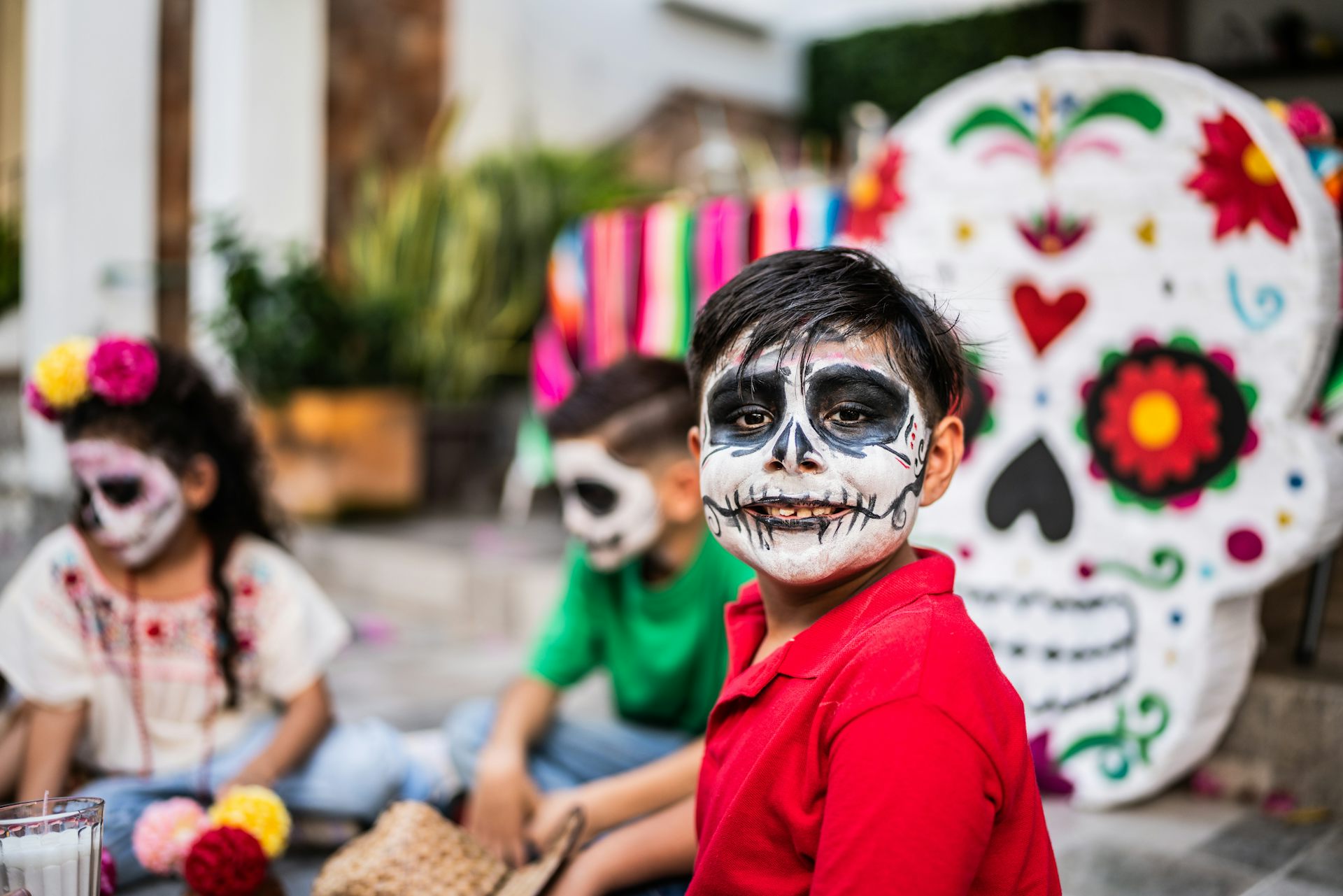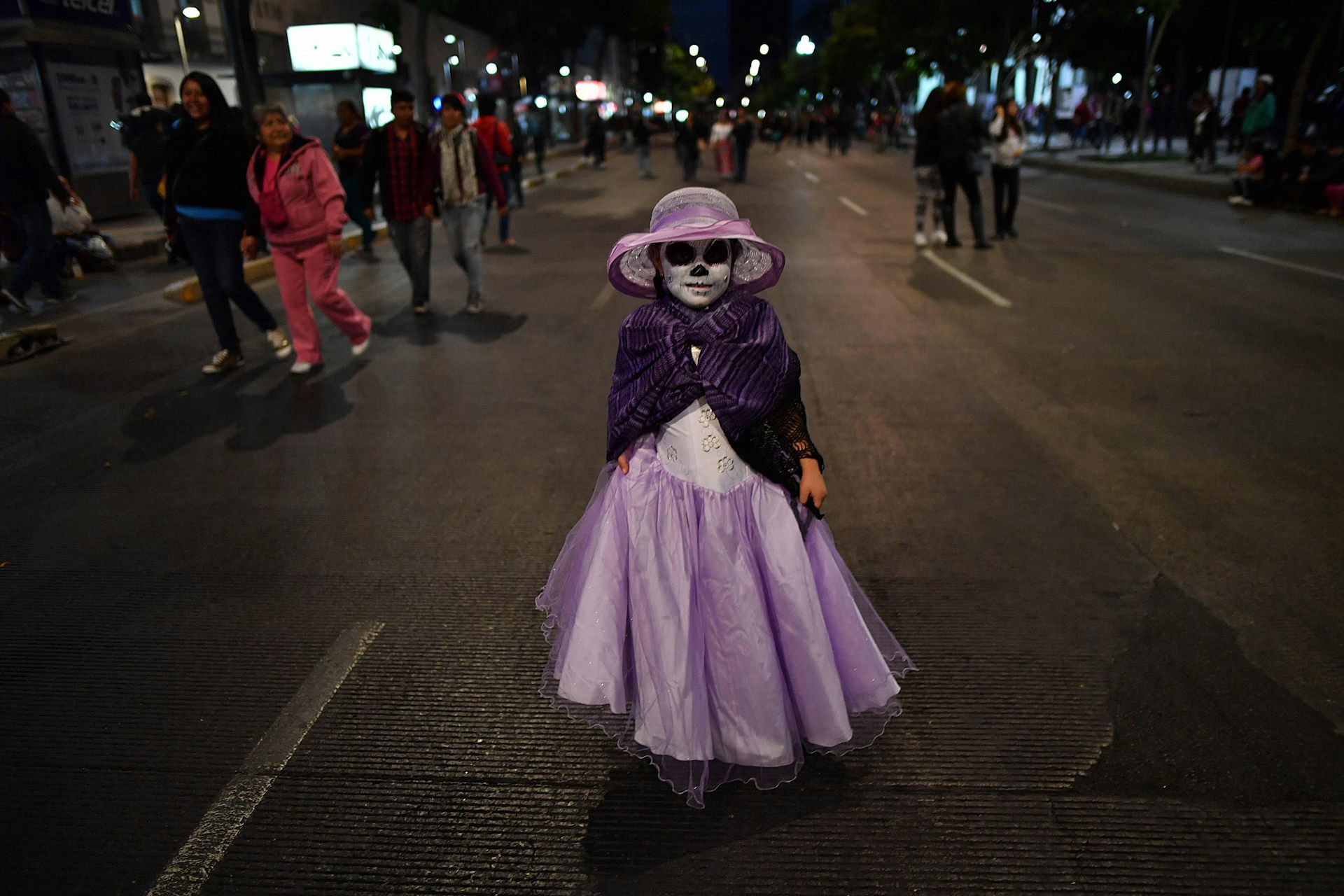When the world is full of woes, watching a comedic opera, albeit one with some quirky plot twists, is a welcome escape. Donizetti’s The Daughter of the Regiment, which can be seen several times this November at the Lyric Opera of Chicago, is a wonderful way to be transported to musical dreamland. This production stars an accomplished and...
Culture
In Online News, Do Mouse Clicks Speak Louder Than Words?
In a polarized country, how much does the media influence people’s political views? A new study co-authored by MIT scholars finds the answer depends on people’s media preferences — and, crucially, how these preferences are measured. The researchers combined a large online survey experiment with web-tracking data that recorded all of the news sites participants visited in the month...
Day of the Dead Is Taking on Halloween Traditions, but the Sacred Holiday Is Far More Than a ‘Mexican Halloween’
Many Latinos regularly declare: “Día de los Muertos is not Mexican Halloween.” The declaration is increasingly repeated by non-Latinos too. Drawing a clear line between the two holidays is a rhetorical strategy to protect Day of the Dead’s integrity as Mexican cultural heritage and separate it from American popular culture. However, as a Mexican-American who...
The Day of the Dead in Mexico Is a Celebration for the 5 Senses
The Day of the Dead in Mexico smells like cempasuchil flowers and copal incense. It has a sweet taste. Sounds and colors abound. There are photos, candles and music all over. The hands of artisans prepare the altars to honor their ancestors. Although it is an intangible tradition, borne down from pre-Hispanic cultures, Day of the Dead...
How ‘La Catrina’ Became the Iconic Symbol of Day of the Dead
On April 13, 1944, thousands of people clashed with police on the steps of the Art Institute of Chicago. The melee was unrelated to U.S. participation in World War II, labor unrest or President Franklin D. Roosevelt’s controversial move to seize control of local Chicago industries. Rather, a massive, impatient art crowd overwhelmed the museum’s...
Caution: Content Warnings Do Not Reduce Stress, Study Shows
Advocates for the use of trigger warnings suggest that they can help people avoid or emotionally prepare for encountering content related to a past trauma. But trigger warnings may not fulfill either of these functions, according to an analysis published in Clinical Psychological Science, a journal of the Association for Psychological Science. Instead, warnings appear to heighten the anticipatory...
How to Protect Self-Esteem When a Career Goal Dies
Many people fail at achieving their early career dreams. But a new study suggests that those failures don’t have to harm your self-esteem if you think about them in the right way. Researchers found that people who viewed career goal failures as a steppingstone to new opportunities never lost self-esteem, no matter how many times...
Study Confirms It: Opposites Don’t Actually Attract
Opposites don’t actually attract. That’s the takeaway from a sweeping CU Boulder analysis of more than 130 traits and including millions of couples over more than a century. “Our findings demonstrate that birds of a feather are indeed more likely to flock together,” said first author Tanya Horwitz, a doctoral candidate in the Department of Psychology...
Does a “Surprise” Factor in Gift-Giving Affect Beneficiaries’ Gratitude? Scientists Answer
Gratitude is a strong emotion, usually felt by a person who benefits from an intentional good deed of another person. Receiving gifts or benefits can instill a feeling of gratitude in people who receive them, i.e., beneficiaries, encouraging them to be more prosocial, while also helping to create a bond with their benefactors. This has...
Mexico’s Native Ethnic Groups Promote Their Heritage During Oaxaca’s Biggest Cultural Festival
Leticia Santiago carries her ancestral heritage wherever she goes. Every time she addresses the crowds during the Guelaguetza, the biggest cultural event in southwestern Mexico, her words, her garments and her skin reveal a clue about the town where she was proudly born. The 35-year-old Mexican was elected as Centéotl goddess in late June, which...








